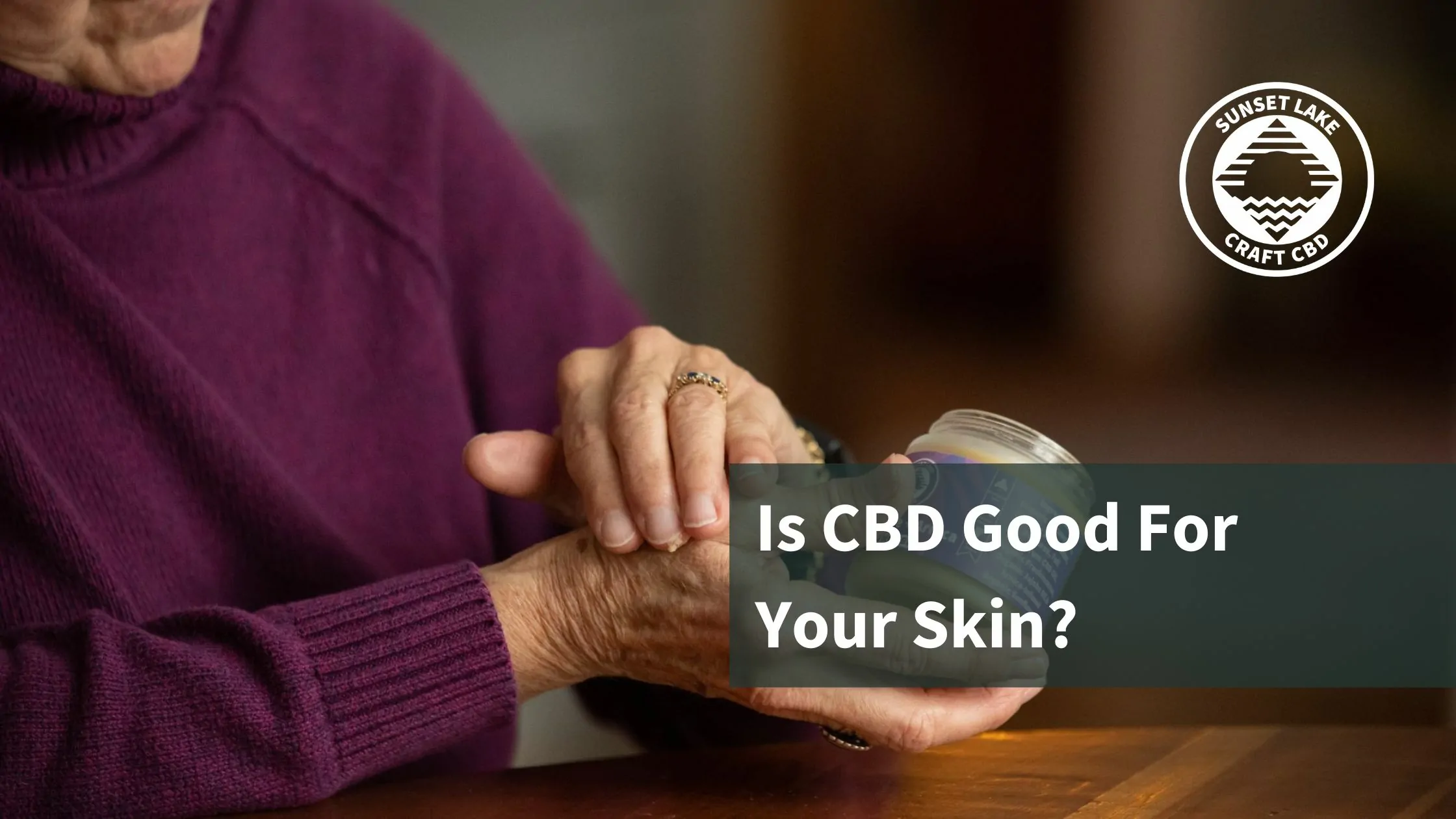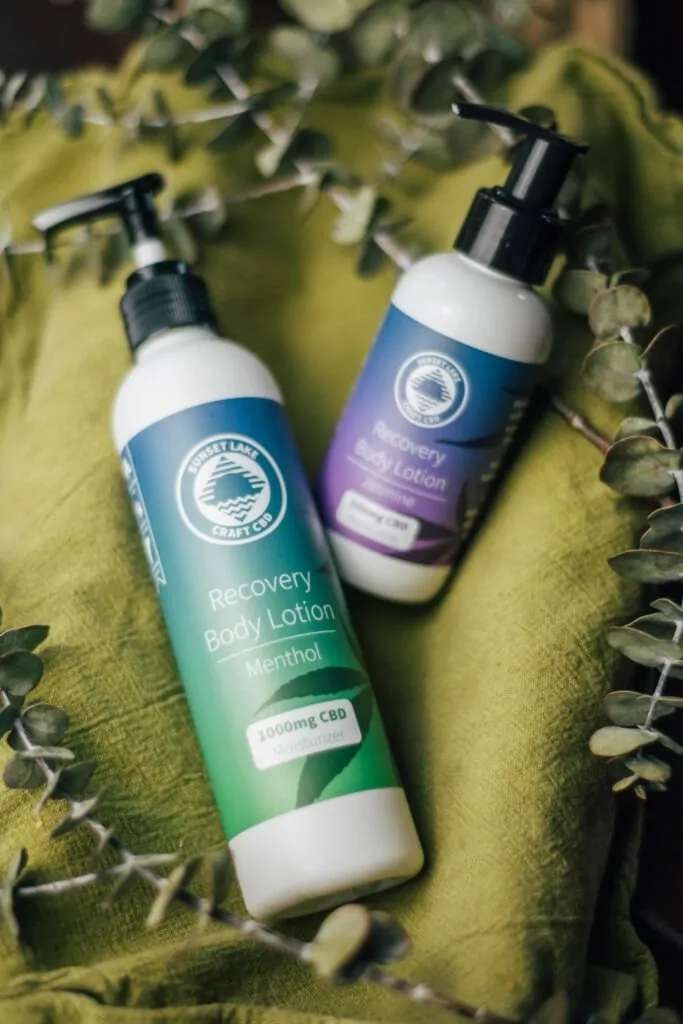No products in the cart.
Is CBD Good For Your Skin? What You Should Know

Is CBD good for your skin, or is it just another passing fad in the fast-paced beauty and cosmetic industry? While there is no shortage of so-called miracle products on the market, Cannabidiol, an age-old phytochemical produced by the hemp plant is worth another look.
In this post, we’ll talk cover the basics of CBD and skincare and cite some pieces from the growing body of research into whether or not CBD is good for your skin.
What Is CBD?
CBD (short for cannabidiol) is one of the more than 100 naturally occurring cannabinoids produced by hemp and cannabis plants. It is also non-psychoactive, meaning that taking or applying CBD to your skin won’t make you feel “high.”
CBD & Skincare
You may be seeing more skin products infused with CBD on your shelf and wondering how it’s processed from a hemp plant into a facial cream.
The process is straightforward. Once hemp is harvested, lab technicians extract its active ingredients— CBD and other cannabinoids— via ethanol or supercritical carbon dioxide and purify it via distillation. Distilled CBD can be infused into oils like MCT, coconut, or hemp oil and blended into a wide range of products like lotions and salves.
Is CBD Good For Your Skin?
Is CBD just another tool used by companies to markup common skincare items?
There is a growing field of research into whether or not CBD applied directly to the skin can help manage skin conditions.
CBD For Acne
Acne is a common skin condition that happens when our skin creates excess sebum, an oily substance that protects our skin. When your skin creates excess sebum, it can mix with dead skin cells or external pollutants and get trapped in your pores, causing your skin to break out into acne.
Many factors influence your skin’s production of sebum, including hormonal imbalances, genetics, stress, medications, and diet. While CBD isn’t going to address many of these factors, a 2014 study suggests CBD, taken orally or topically, may help prevent and relieve inflammation caused by acne.
If you already have acne, CBD oil or facial serum may also help reduce the redness and irritation caused by acne.
CBD For Wrinkles
As our skin ages and is exposed to more external damage, it becomes less elastic and more susceptible to damage. Damage can range from exposure to the sun (UV light,) to smoking, to repeated facial expressions like smiling.
There are plenty of preventative measures someone can take like using sunscreen or moisturizing, but can CBD somehow reverse the effects of aging and smooth out wrinkles?
Unfortunately, no. CBD isn’t a magic bullet for your skin. But, there is some research that suggests that CBD’s antioxidant properties can reduce your skin’s oxidative stress— the imbalance between the production of free radicals and antioxidant defenses. So while using CBD on your skin won’t get rid of your wrinkles, it may help boost your skin’s antioxidant defenses and prevent new wrinkles from forming.
CBD For Psoriasis
Psoriasis is a common skin disease characterized by itchy, scaly patches of skin. There is no known cure, and flare-ups can be painful for individuals. Studies have shown a strong relationship between psoriasis flares and stress and anxiety.
CBD is believed to help reduce inflammation and relieve skin and joint pain when taken both orally and topically. CBD is also thought to help with stress and calm the symptoms of anxiety. So while CBD is not an effective treatment for psoriasis, it may help mitigate the factors that cause flare-ups and help ease discomfort during a flare-up.
CBD For Eczema
Eczema, like psoriasis, is a common skin condition characterized by itchy, inflamed skin. There are few studies regarding CBD use and eczema, like this study published in 2019 that found that CBD ointment helped clear eczema and help reduce sleep loss caused by discomfort and itching.
The National Eczema Association has said that adults who want to try topical CBD for their condition should, as they believe that it is safe to use.
CBD For Dry And Cracked Skin
While not linked to any specific condition, many of us suffer from dry and cracked skin, especially during winter months. One of the best ways to combat dry skin is to stay hydrated. Another is to use moisturizers that protect your skin from the elements.
CBD-infused topicals are a great way to both moisturize your skin and protect it from further drying.
How Do You Use CBD On Your Skin?
Using CBD on your skin is as easy as buying CBD oil, or a CBD topical product and applying it directly to your skin. You can bolster the effects of topical CBD by also taking CBD oil orally.
If you’re making your own at-home CBD topical, you’ll want to mix raw CBD flower with a carrier oil like:
- Coconut oil
- Olive oil
- Shea butter
- MCT oil
Because CBD is fat soluble, it will bond to the lipids in your preferred oil at which point you can combine them with ingredients of your choice.
Read more: How to make your own DIY CBD infusions.
Is CBD Safe For Your Skin?
CBD is generally well-tolerated by most, but that doesn’t mean that you won’t experience any side effects. If you’re taking CBD oil orally to help with a skin condition, you may experience the following side effects:
- Change in appetite
- Diarrhea
- Nausea
- Dizziness
- Upset Stomach
- Weight change
Less is known about the side effects of using CBD topically. If you experience any rash or irritation after using a topical CBD product, you should consult your doctor.
Sources
- Oláh, Attila et al. “Cannabidiol exerts sebostatic and antiinflammatory effects on human sebocytes.” The Journal of clinical investigation vol. 124,9 (2014): 3713-24. doi:10.1172/JCI64628
- Iffland, Kerstin, and Franjo Grotenhermen. “An Update on Safety and Side Effects of Cannabidiol: A Review of Clinical Data and Relevant Animal Studies.” Cannabis and cannabinoid research vol. 2,1 139-154. 1 Jun. 2017, doi:10.1089/can.2016.0034
- Palmieri, B et al. “A therapeutic effect of cbd-enriched ointment in inflammatory skin diseases and cutaneous scars.” La Clinica terapeutica vol. 170,2 (2019): e93-e99. doi:10.7417/CT.2019.2116

